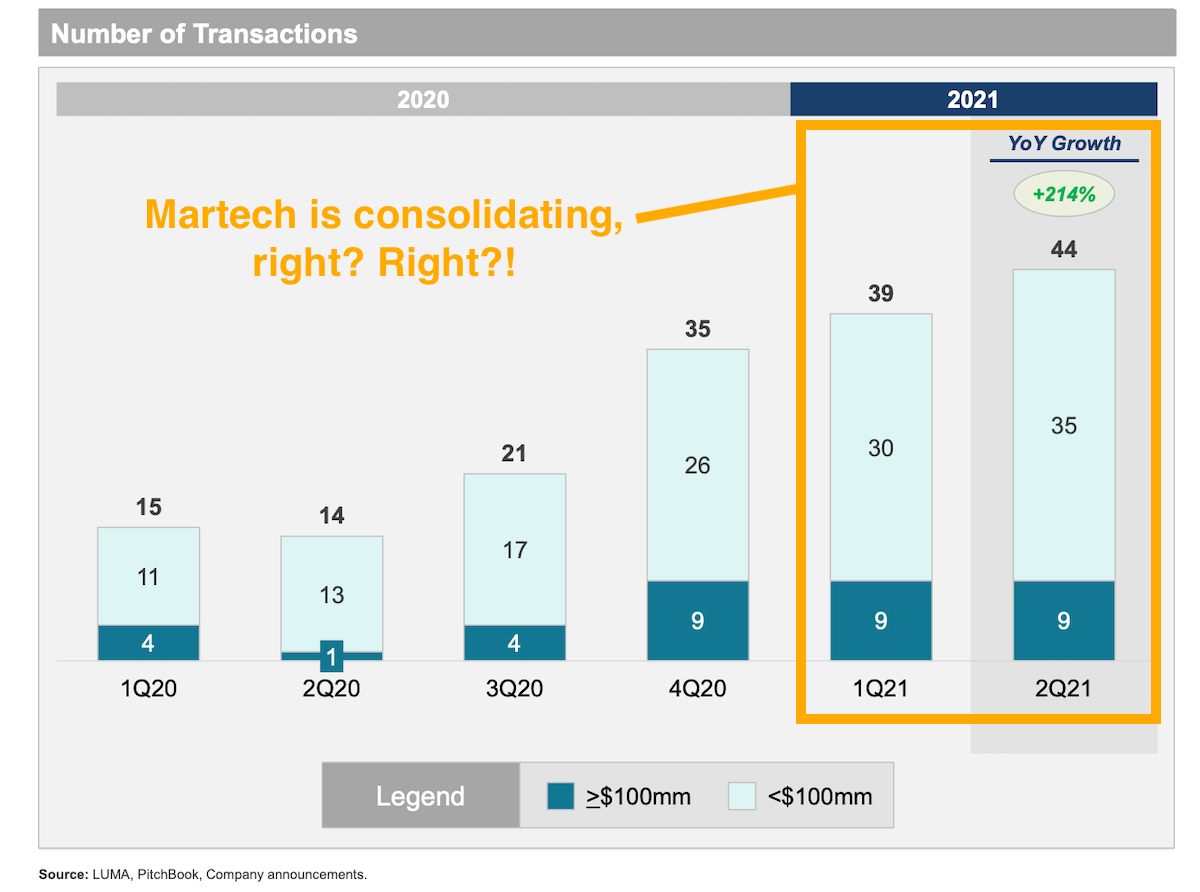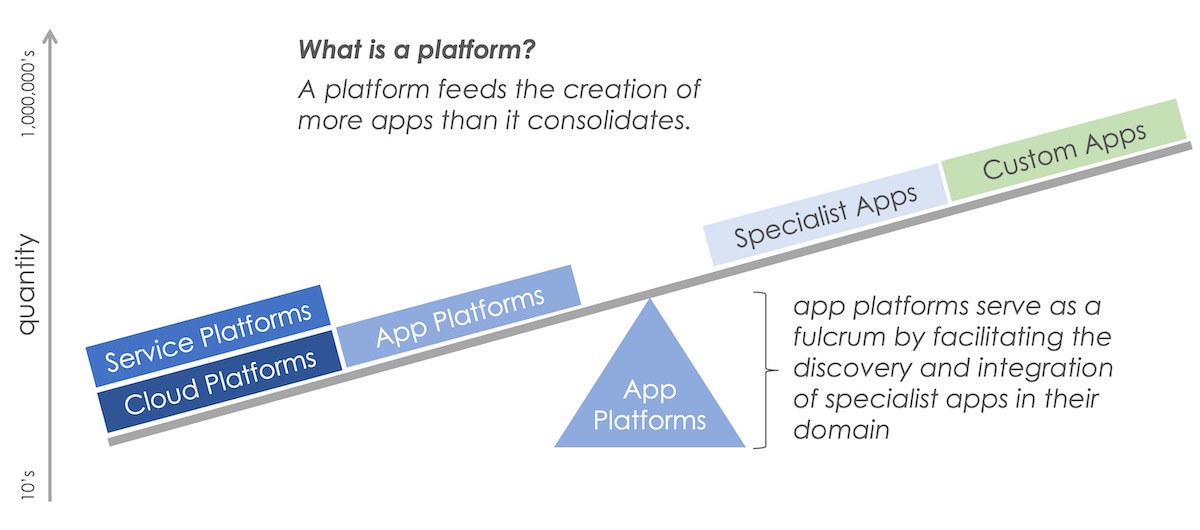Tuần trước, Y Combinator đã tổ chức các Ngày giới thiệu cho nhóm thuần tập Mùa hè năm 2021 của họ. Đây là một lớp tốt nghiệp lớn: 377 công ty khởi nghiệp từ 47 quốc gia. Bạn có thể đọc tổng quan nhanh về tất cả 377 công ty trên TechCrunch, chia thành phần một and phần hai.
Tôi đã đọc qua tất cả 377 và phát hiện ra 47 mà tôi sẽ đưa vào cảnh quan martech. Đây là danh sách: 47 new martech companies from latest Y Combinator cohort – the counter-consolidation narrative lives on – Chief Marketing Technologist (chiefmartec.com)
Bây giờ, tôi chắc chắn rằng một số bạn sẽ hoài nghi và hoài nghi về việc có bao nhiêu trong số này sẽ tồn tại trên thị trường – đặc biệt là những công ty cạnh tranh với các nhà lãnh đạo lớn như Shopify (mặc dù, luôn có một bước ngoặt có thể mang lại lợi thế cho họ trong một chuyên ngành vùng hoặc miền).
Tuy nhiên, điều tôi đánh giá cao về “sự kiện” Demo Day này là nó có đủ mức độ bao phủ để khiến người ta dừng lại và nhận ra có bao nhiêu công ty khởi nghiệp tiếp tục theo đuổi những cách thức mới để đổi mới – ngay cả trong các thị trường, như martech, vốn đã có sự cạnh tranh đáng kể.
Một số người trong số họ sẽ vượt qua được các giải đấu lớn. Trường hợp cụ thể: hai năm trước, bạn có thể nghĩ không gian nền tảng sự kiện đã bão hòa và trưởng thành – nhưng sau đó Hopin xuất hiện và trở thành một trong những sản phẩm SaaS phát triển nhanh nhất trong lịch sử thế giới.
Quan điểm của tôi là trong khi hợp nhất đang diễn ra, thì sự đa dạng hóa cũng đang phát triển mạnh.
Có, đã có rất nhiều hoạt động M&A martech trong năm nay. Báo cáo Thị trường Quý 2 năm 2021 của LUMA đã báo cáo 83 thương vụ mua bán công nghệ cao trong nửa đầu năm nay. (Đối với những người tính theo bối cảnh thị trường công nghệ của năm ngoái là 8.000 giải pháp, thì con số đó là khoảng 1%.)

Giao dịch lớn nhất trong số những giao dịch này chắc chắn sẽ kết thúc trong các tiêu đề mà bạn nhìn thấy từ các thông cáo báo chí được đề cập rộng rãi. Khi bạn nhìn thấy một vài trong số chúng liên tiếp trong một khoảng thời gian ngắn, thật dễ dàng để rút ra kết luận, “À, ha! Martech đang củng cố. ” Bởi vì đó là những gì chúng ta thấy.
Và, này, có sự thật trong niềm tin đó. Mua lại là sự hợp nhất của các công ty riêng lẻ. Trong phần đuôi dài của tất cả các công ty công nghệ trên thế giới, sự hợp nhất này thúc đẩy tăng trưởng ở phần “đầu” của phần đuôi.
Nhưng như sự kiện Y Combinator này nhắc nhở chúng ta, đó không phải là toàn bộ sự thật. Bởi vì đồng thời martech đang củng cố, nó cũng đang mở rộng. Điều này nghe có vẻ không hề nghịch lý, khi bạn nhận ra rằng các nền tảng hợp nhất cho phép đa dạng hóa hơn và chuyên biệt hóa các ứng dụng trên chúng. Và các nền tảng hỗ trợ các nhà phát triển như vậy đang rất hot!

Trong khi tìm kiếm hình ảnh trên, tôi tình cờ bắt gặp một bài báo tôi đã viết cách đây 9 năm về chủ đề chính xác này: Công nghệ tiếp thị là hợp nhất hay đa dạng hóa? Vì đó là năm mà bối cảnh thị trường công nghệ của tôi chỉ có ~ 350 công ty và hiện chúng tôi đã có hơn 10.000 công ty, tôi có thể nói rằng chúng tôi đã trả lời khá rõ ràng điều đó.
Đã một thập kỷ sau, và món súp khởi nghiệp martech nguyên thủy vẫn đang tràn đầy sức sống mới.
Translated by: Phan Cong Duy





